In search for Soma: The truth about anxiety medication
The truth is that anxiety and depression medication will never solve anything. In the best case, they are emotional painkillers. Just like physical painkillers, they may help you cope while you do what’s necessary to heal. But they can’t and won’t solve the underlying problem.
When I first read Aldous Huxley’s novel Brave New World in 1984, the fictitious drug Soma made me feel intensively envious. Of course, on an intellectual level, I understood the dystopian theme of the book. I understood that Soma was one of many measures the government in this society used to suppress the people, to take away their free will and humanity.
Still, oh, how I wished I could have popped “half-gramme for a holiday” every time anxiety threatened to tear my intestines out of me.
Where was Soma when I needed it? Where is it now? 41 years later, in a world where anxiety disorders are more common than ever before, where the advances in technology and medicine have worked so many other wonders, where is Soma? Where is the unproblematic drug you can take any time you feel scared or upset without fearing side effects, hangovers, or addiction?
It’s not there!
The buddy in the bottle
I read here and there that “the medicine of choice” for treating anxiety these days is antidepressants. I’ll return to antidepressants, but this is true only from a doctor’s perspective. Sadly, “the medicine of choice” for way too many people suffering from anxiety is and has been for hundreds of years, our buddy in the bottle: alcohol.
As I discovered myself at the age of thirteen, years before I read about Soma, alcohol is one of the absolutely most effective anxiety-reducing substances out there. Oh, the feeling the first time alcohol soaked into my brain and instantly killed all my worries. It works extremely quickly. It’s legal and readily available in most places. What more can you wish for?
Well, you could wish for a more trustworthy buddy. One that doesn’t leave you in a mess the day after, feeling like crap, more anxious than ever before. One that doesn’t make you do stupid things, sometimes putting yourself and others in danger. One that doesn’t stealthily lure you into addiction. One that doesn’t destroy your health, relations, and life if you’re unlucky.
For some reason, perhaps genetic reasons, I didn’t fall into that trap myself, even though I self-medicated with alcohol as much as time, money, and social conventions allowed through some of the decades of my life. I consider myself very, very lucky in that respect.

The brilliant benzos
Lucky enough, and finally wise enough, to be careful when I got a prescription for benzodiazepines for the first time in my mid-forties. Valium was the first ‘famous’ member of this class of drugs. You may know them today under several other brand names, such as Stesolid, Diazemuls, Ativan, or Rivotril.
Oh yes, these drugs will be highly effective ‘painkillers’ for most of us if we are in a rough place with our anxiety. They work quickly, and we might not notice any side effects at all.
At first. If we take low doses for a limited time.
Because this is highly addictive stuff, you will soon need more of it to maintain the effect. And when you’re on high doses for a long time, the list of possible side effects is quite impressive: confusion, memory and concentration problems, emotional blunting, and in some cases, worsening of depression and anxiety.
But what scared me off using Benzos for more than rare emergencies were the stories I’d heard about the withdrawal symptoms some people had after being caught in a Benzo addiction. They said the anxiety they experienced was beyond imagination, even for seasoned anxiety sufferers.
I decided I definitely didn’t need this.
The ‘happy pills’
Some people call antidepressants ‘happy pills’, which is far from the truth. I’ve told the truth (as I see it) about antidepressants here:
It’s reported that some people find antidepressants helpful for their anxiety as well. I have no reason to doubt this, even though I never experienced any such improvement while trying almost every family of antidepressants on the market. But then again, they didn’t help with my depression either.
However, I would guess that the same applies to anxiety as to depression if we put our hopes on the shoulders of the antidepressants:
- They don’t work for everyone; we may estimate they work for half of us.
- They don’t really work much better than a placebo (‘mock medicine’), so our expectations and hopes are perhaps more critical for the results than the chemicals.
- They don’t work immediately, far from it. We must expect to wait weeks, perhaps months before we get an effect from them (if at all).
- If we get an effect from antidepressants, we almost always have side effects as well. Sometimes, we have side effects even if we don’t have any desired effect.
For most people, the big question will be whether the benefits of antidepressants (if any) outweigh the costs of the side effects. For more information, please read the article I mentioned above.
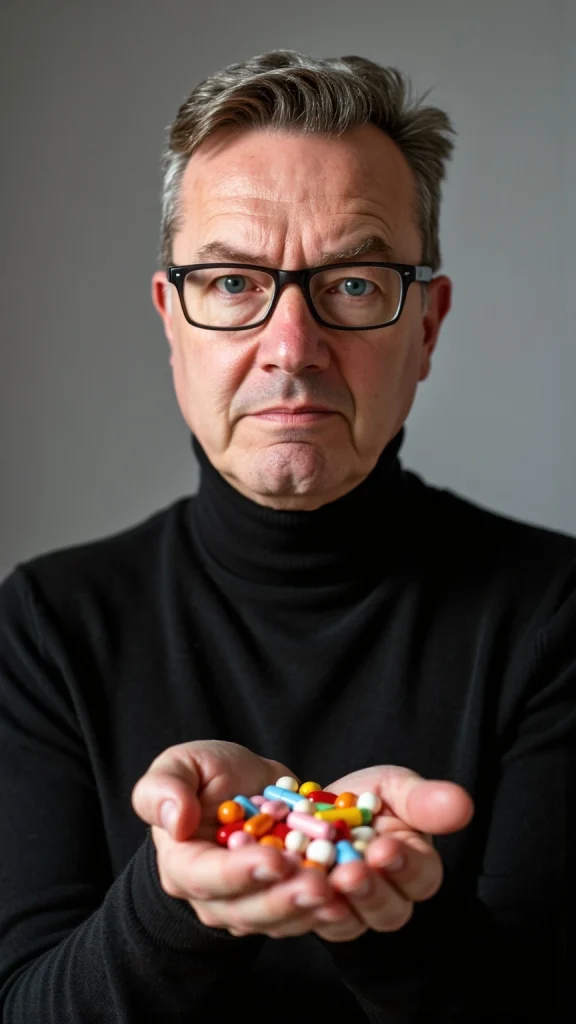
Anything else on the prescription pad?
I have promised real-life experience only on the deliberate.one website, so I won’t be judgemental about things I haven’t tried. However, I was curious about what’s out there today and googled around a bit, and Buspirone and Hydroxyzine turned up in most of my searches.
Buspirone has some similarities with SSRIs (the most common family of antidepressants). It manipulates how the signal substance Serotonin is managed in our brains. It seems like it has many of the same potential side effects as SSRIs. It works faster, but we are still talking about 2 to 4 weeks of consistent use before we can expect to feel better.
It’s hard to find agreed-upon numbers for how effective Buspirone is. Some sources say that 60 – 70% of people with a General Anxiety Disorder diagnosis feel significantly better when using the medicine, while it’s generally not effective at all for other types of anxiety, like panic attacks and social anxiety.
Hydroxyzine is an antihistamine, originally an allergy medicine. I’ve heard about old antihistamines used for insomnia earlier, but they have apparently found that this one has a moderate anti-anxiety effect as well. However, we are likely to experience tiredness and drowsiness as side effects. All the same, Hydroxyzine is said to work quickly and is not addictive like Benzos.
Back alley medication
I had a few encounters with cannabis (hashish, marijuana) back in the 1980s. Based on my limited use only, I would say this is the closest thing to a miracle medicine for anxiety I’ve ever tried. Even when my anxiety felt like a tornado inside me before I smoked a joint, I generally felt totally calm for up to 24 hours afterwards. Without any side effects.
Even though I knew people back then who had a keen interest in certain mushrooms, I never tried them myself. However, for decades now, I’ve seen articles about limited research on Psilocybin, the active substance in magic mushrooms, which has shown amazing results for both anxiety and depression. But it seems like nothing more happens in this field.
Now, I’m not going to recommend illegal drugs to anyone. There’s no doubt that wrong use, especially too much, too often, and for too long, can have adverse and potentially dangerous effects on our mental health. Besides, they are illegal in most countries, and getting temporary anxiety relief may not be worth having illegal drug possession on our record.
However, what puzzles me is that if something, even if it’s an illegal substance now, shows amazingly promising results in tests, why isn’t more research done to clarify if it actually can help people? I mean, millions of people are suffering out there. For instance, it’s estimated that nearly 20% of the US population has an anxiety disorder. Another estimate is about 4% of the global population. This means more than 300 million people.

The puzzling disinterest of politicians and pharmaceutical companies
Why on Earth isn’t more research done when at least limited and scattered attempts show auspicious results? Why, if there is a possibility that millions of people’s lives can be improved?
I don’t know much about how it is elsewhere, but in my country of birth, Norway, politicians generally go into immediate and full rigor mortis whenever someone mentions a potential positive effect of anything classified as illegal drugs today. There is absolutely no interest in exploring what can help suffering people if these substances are used in a government-controlled and healthcare-supervised way.
Politicians tend to paint a black-and-white picture of the world to avoid insulting their voters. If something is wrong (e.g. using illegal drugs), there just cannot be anything right with it at all (e.g. positive effects of the same substances under controlled conditions).
Well, how about this: I’m convinced
- that most substance abuse starts because people are struggling,
- that a significant portion of these people are struggling with anxiety and depression, and
- that many of them turn to illegal substances because available medicines are so frustratingly ineffective.
The pharmaceutical industry isn’t interested, of course. For them, it’s imperative to control the production and sales of the (mostly ineffective) anti-anxiety medicines on the market. They won’t earn as much money as they do now if raw materials for effective anti-anxiety medication can be produced by, say, farmers in Afghanistan or picked by anyone in the nearest forest.
But drugs will never solve any problems anyway
That’s correct! Substances used against anxiety (just like antidepressants), whether they are legal or illegal, prescripted or not, will never ever be anything but emotional painkillers at their best.
Drugs will never solve the underlying problems. For most people struggling with anxiety, something has caused this condition. If we don’t face what’s causing our anxiety, the problems will persist.
Yes, anti-anxiety substances can help us cope while we are solving real problems, just like anaesthetics can help us cope while the dentist or surgeon fixes our more bodily issues.
Looking back at my self-medication with alcohol earlier, there are things I can regret. For instance, the amount of money I spent on it and some stupid things I did under the influence. However, I also understand that I sometimes desperately needed a break from my anxiety and that I might not have survived without these breaks.
However, we’re in a vulnerable situation when we seek relief from mental pain by using chemicals. The line between when we’re in control and when we’re not may be very thin. Most of us won’t notice when we cross over it. That’s when tragedy starts.
I was lucky; I never crossed the line. Be careful!
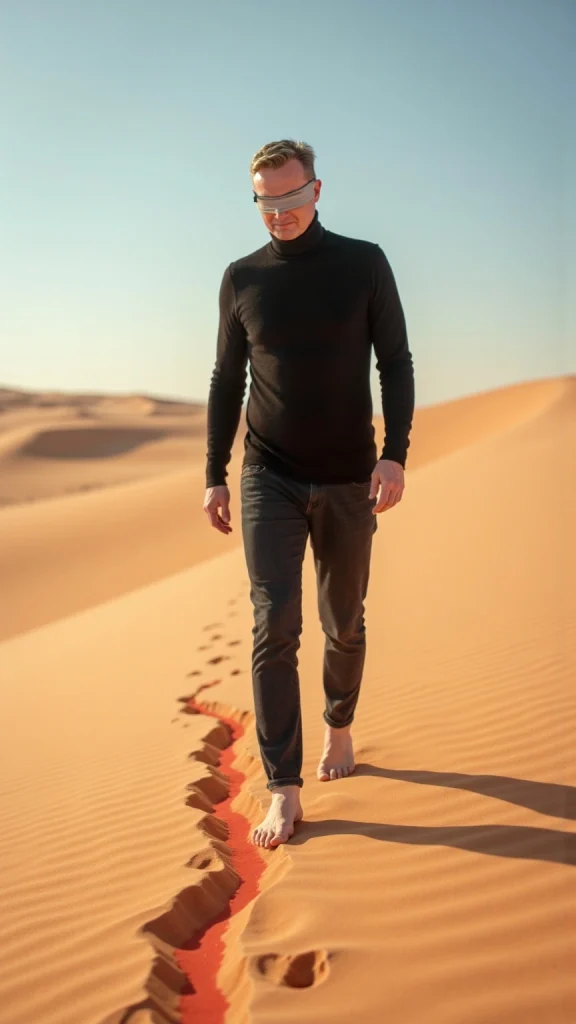
The anatomy of anxiety
If we want to address the underlying problems causing our anxiety, we need to know a few things about anxiety anatomy. Admittedly, this is a vast area to cover. Let me present a simplified model of anxiety as I see it:
Somewhere inside our brains lives Fear. You might not like him much, but he’s a good guy. He’s our little soldier. He usually sleeps most of the time, but if something threatening happens, he’s up on his legs instantly, fully alert. Just a few milliseconds is all he needs to assess the situation and decide whether the best option is to fight or run for our lives. Alarm bells are ringing, and our brains and bodies are flooded with hormones to make us the best fighting or running machines possible.
Sometimes, we have to fight or run. Sometimes, it’s just a scarejump. And when it’s over, Fear is supposed to go to sleep again quickly.
It’s just that Fear suffers from insomnia in some of us, and then we call him Anxiety.
Always alert
We probably lose control of our natural fear response for many different reasons. One prominent reason is exposure to chronic stress, also called toxic stress. Our brains change physically if we live with chronic stress, particularly if the stress factors are unpredictable. Our bodies are instantly flooded with inflammatory stress hormones. Unsurprisingly, the effects of chronic unpredictable stress are worse if we’re exposed to it in childhood and adolescence.
The brain damage done by exposure to chronic, unpredictable stress can put us in a constantly hyper-vigilant state. We’re always alert, always expecting danger, always stressed. Does it sound familiar?
The more helpless we feel when exposed to stress, the more damage is done. Fear is a true soldier; if he believes we can fight or run ourselves out of the threatening situation, he will help us do this. But what if we can’t win? What if there is no way out? What if we can’t know when the next bad thing will happen?
That’s when anxiety sets in.

There is almost always something that can be done
Even if Fear has been awake in us for decades.
What’s certain is that the final answer isn’t to be found in medicines, alcohol, legal or illegal drugs, or other chemicals.
The answer is to face the underlying problems, which in some cases might be a long journey. Still, it’s probably your life’s most important and rewarding journey. I’m not an omniscient guru, but I have compiled 40 tips based on hard-earned experience for those who want to start this journey:
All of them will be somewhat relevant to everyone who suffers from anxiety or depression. Some might be life-changing if you haven’t thought of them before. Have a look!
Do we really want to find Soma?
I don’t think so.
A life in constant drug-induced happiness would be strange, a world with only one colour. We wouldn’t be human without the whole rainbow of human emotional experience. Where would art, poetry, and music be without this glorious rainbow, without some grit in our emotional machinery?
Furthermore, we would be in danger without Fear. Who would tell us when to fight or run? For generations, we have bred sheep to have less fear because it’s easier to control them if their instincts don’t tell them always to run away from us. The problem is that sheep bred to be unafraid of humans are also quite chill about predators like wolves and bears. Which means they are easily eaten.
Did you think that example was far off? Well, the people in power in Brave New World constantly fed everyone with Soma to keep them under control. This is probably not what we want. So, on another day, we can think about how we are fed mind-numbing entertainment and goods to consume every day. Could it be to distract us from any underlying problems? Does it make life easier for certain predators?
Aaaanyway, for now, please don’t wait for chemicals to solve any problems. It’s time to start your own personal journey away from anxiety.

All pictures used in this article are AI-generated illustrations. Some of them resemble me, but aren’t real pictures.
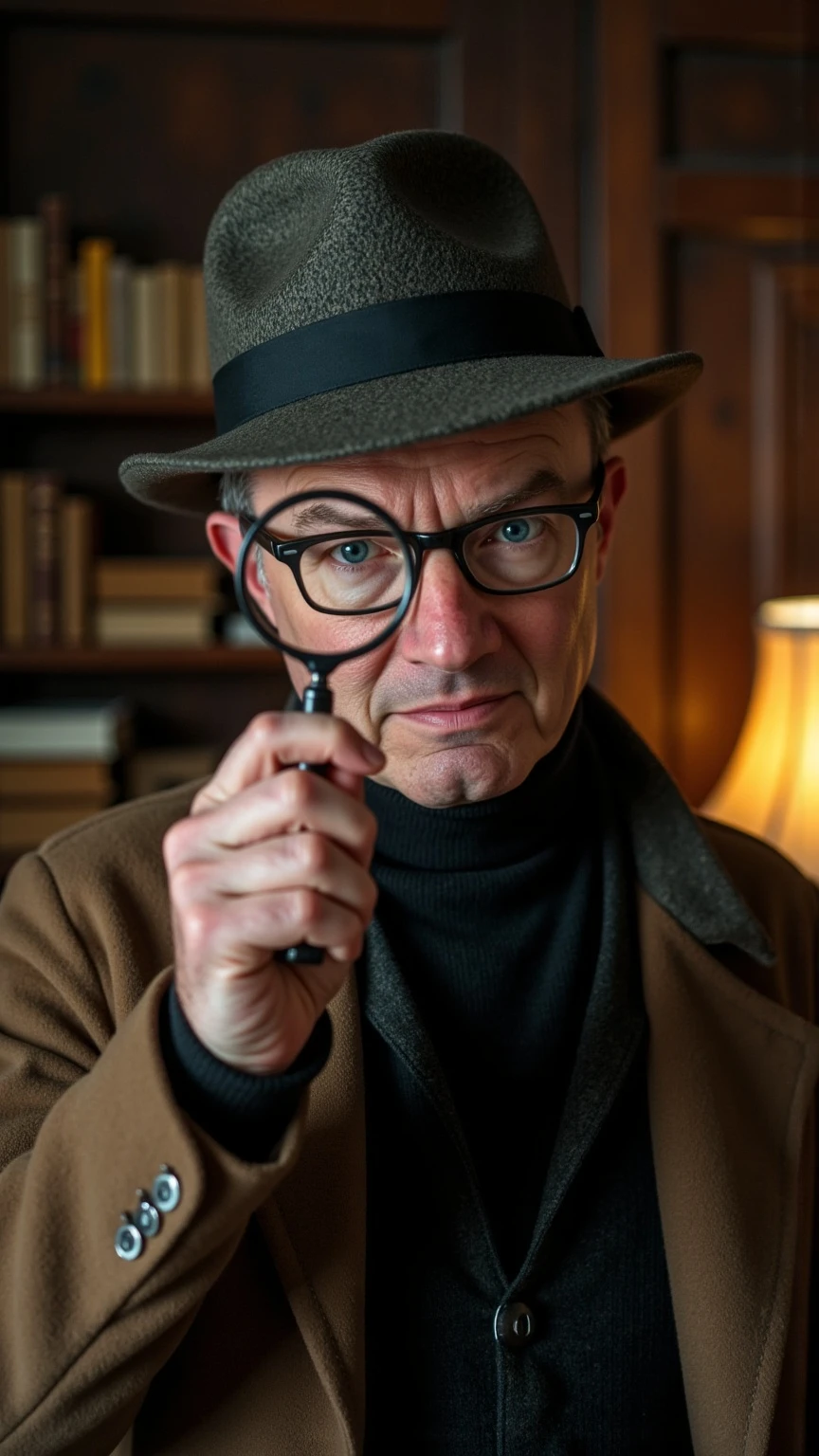
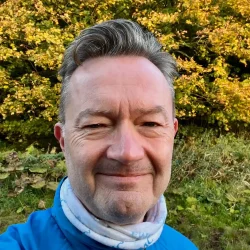
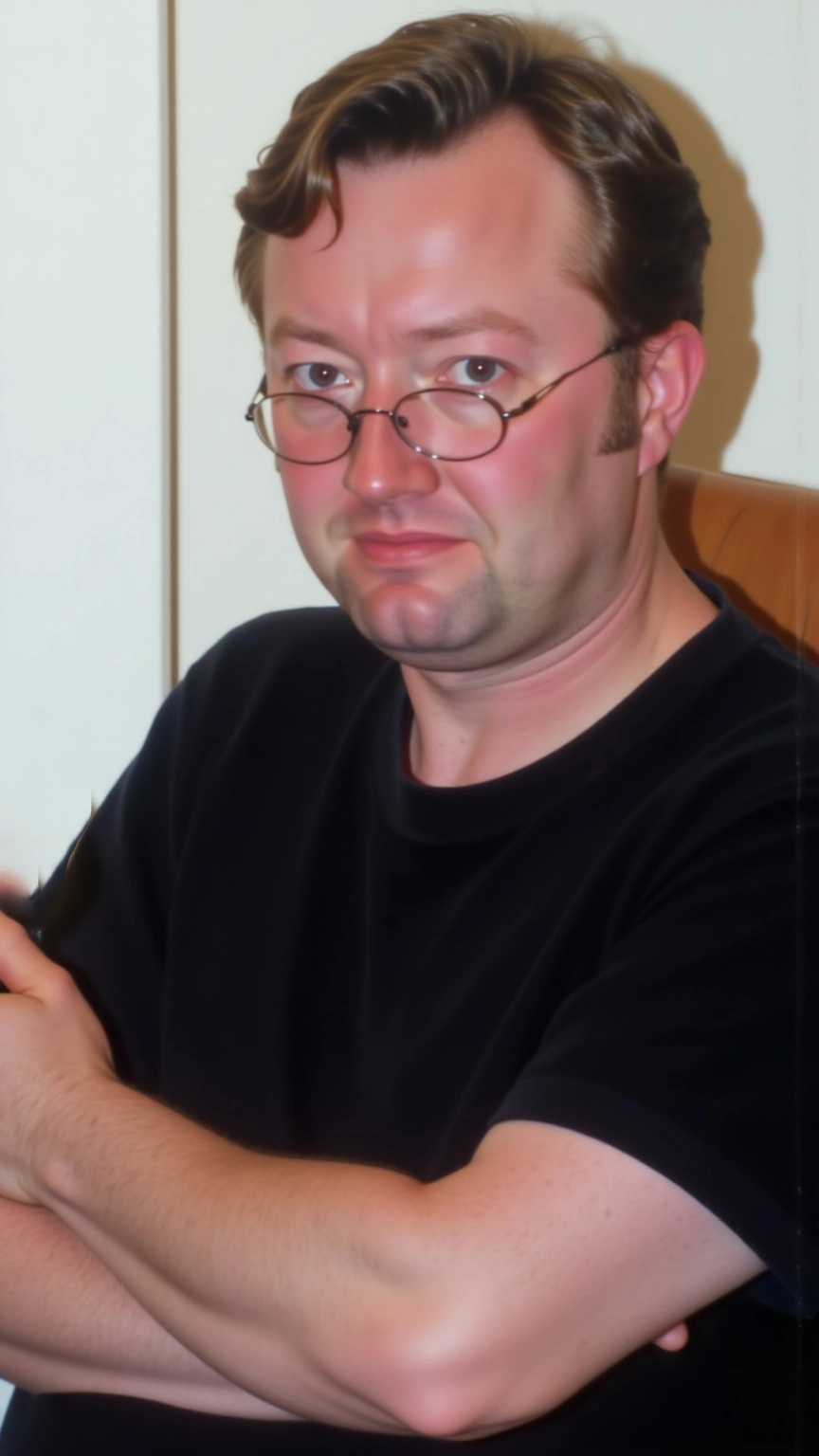



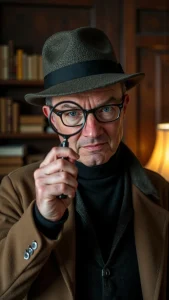





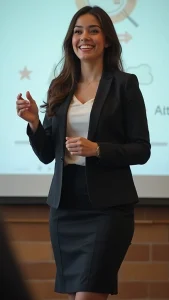


Post Comment
You must be logged in to post a comment.